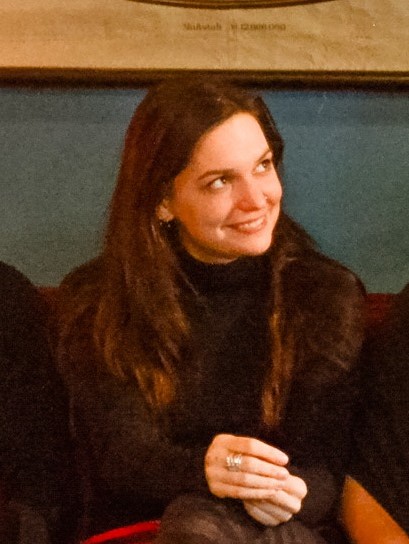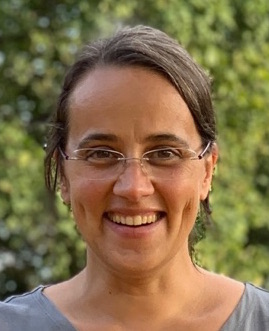Lecturer: Claudia Muth & Elisabeth Zimmermann
Fields: Cognitive Science/ Enactivism, Phenomenology, Dance/Movement Research, Art, Design
Content
Curiosity entails being able to delve into the unknown, to challenge habits of thinking, of acting, of reacting, of perceiving, – of sense-making. We can decide to let ourselves be challenged, we can seek uncertainty and the risk of not knowing what will come. This for example happens, when we try out a new physical activity we don’t master yet, e.g. an adult decides to learn to ride a horse. But it also happens, when we expose ourselves to art, challenging our patterns of perceiving.
In such situations we often loose and gain or regain stability. We thereby learn. Accepting moments of instability and uncertainty as part of each learning process can provide insight and even lead to experiencing such situations as pleasurable and rewarding.
Which preconditions and circumstances have to be met in order to develop an attitude of openness, of giving up anticipation and prediction, of letting go and letting come?
Becoming aware of our own patterns of moving, of perceiving, of relating to the world is one necessity. Establishing an atmosphere of trust, where “mistakes” are invited, another.
In this course we aim to put ourselves on “shaky ground” using exercises from dance/movement/contact improvisation, as well as techniques of design/art creation. We will try to become aware of, explore and play around with our habitual ways of interacting with the world and people around us, thereby challenge our habits and raise curiosity for the unknown.
Objectives
The course aims to provide a space, where participants can practice a curious mindset, exploring patterns of thinking and acting, becoming aware of habits and trying to challenge them, a space for trying out, for making mistakes and being awkward.
Participants will move and create, but also discuss how their experiences in class relate to theories and concepts in cognitive science. Therefore, learning goals will be very personal and subjective.
Literature
- Di Paolo, E. A., Rohde, M. and De Jaegher, H., (2010). Horizons for the Enactive Mind: Values, Social Interaction, and Play. In J. Stewart, O. Gapenne and E. A. Di Paolo (eds), Enaction: Towards a New Paradigm for Cognitive Science, Cambridge, MA: MIT Press, pp. 33–87.
- Gapenne, O. (2010). Kinesthesia and the Construction of Perceptual Objects. In Stewart J., Gapenne O., & Di Paolo E. A. (eds.), Enaction: Towards a new paradigm for cognitive science. The MIT Press.
- Muth, C., & Carbon, C. C. (2016). SeIns: Semantic Instability in Art. Art & Perception, 4(1-2), 145–184. doi: 10.1163/22134913-00002049
- Novack, C. J. (1990) Sharing the Dance: Contact Improvisation and American Culture (New Directions in Anthropological Writing). University of Wisconsin Press.
Lecturer

Claudia Muth is a perception researcher with a background in fine arts. She studied cultural design and cognitive science and was working for a small science centre on perception and illusion in Nuremberg. Since 2011 she has been conducting research at the intersection between art and science and has been teaching psychology students at the University of Bamberg as well as (since 2017) graphic design students at the Akademie Faber-Castell in Stein. Her main interest concerns the experience of uncertain, disordered, ambiguous or indeterminate situations and the various ways in which they can confuse, inspire and enrich us.
Affiliation: University of Bamberg
Website: https://www.uni-bamberg.de/allgpsych/wissenschaftliche-mitarbeiter/claudia-muth/

Elisabeth Zimmermann studied human biology and cognitive science at the University of Vienna. In her research she investigates how learning with a focus on body and movement can enable changes in habits and foster openness to new ways of interacting, sense-making, and being.
Since 2006 she has been coordinating the MEi:CogSci – Middle European interdisciplinary master programme in Cognitive Science and also teaching interdisciplinary cognitive science courses within this curriculum.
She has been dancing since her childhood (ballet, jazz dance, modern dance, expressive dance) and has been practicing contact improvisation for more than 20 years. She has been investigating the relation of body and mind on a theoretical level, but also on a practical level, attending courses in Qigong and Tai Chi, Yoga, Body-Mind Centering, Feldenkrais, Continuum Movement, etc.
She has training in holistic dance- and movement pedagogy as well as in classical massage and teaches workshops in dance/contact improvisation on a regular basis.
Affiliation: University of Vienna